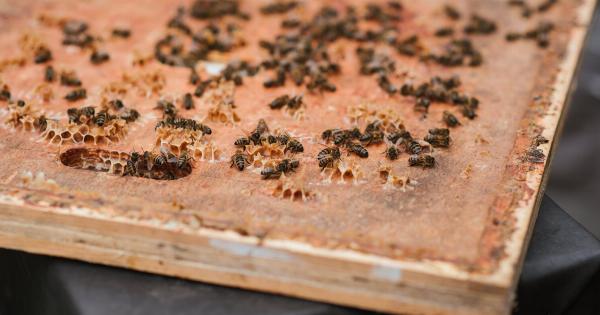With so many diets trending on social media, it’s easy to get caught up in the hype of losing weight quickly or achieving that perfect body. However, not all diets are created equal, and many can be downright harmful to your health.
Here are 10 popular diet trends you should avoid:.
1. Juice Cleanses
Juice cleanses involve consuming only fruit and vegetable juices for several days to boost weight loss and cleanse the body.
However, without adequate protein and other essential nutrients, juice cleanses can lead to muscle loss, nutrient deficiencies and a weakened immune system. In addition, the high sugar content of many juices can disrupt blood sugar levels and cause cravings.
2. The Cabbage Soup Diet
The cabbage soup diet involves eating only cabbage soup for seven to 10 days in order to lose weight.
While it may help you drop a few pounds quickly, this diet is extremely low in calories and lacks important nutrients, such as protein, healthy fats and complex carbohydrates. This can lead to nutrient deficiencies, muscle loss, dehydration and fatigue.
3. The Ketogenic Diet
The ketogenic diet is a high-fat, low-carbohydrate diet that aims to put your body into a state of ketosis, where it burns fat for fuel instead of glucose.
While it can be effective for weight loss and blood sugar management for some individuals, it can lead to nutrient deficiencies and increase the risk of heart disease due to its high saturated fat content.
4. The Military Diet
The military diet involves eating a calorie-restricted plan for three days, followed by four days of normal eating, with the cycle repeated for a month.
While it may lead to temporary weight loss, the diet is low in calories and lacks essential nutrients, potentially leading to nutrient deficiencies.
5. The Master Cleanse Diet
The master cleanse diet involves drinking a mixture of lemon juice, maple syrup, and cayenne pepper for several days to detoxify the body.
However, this diet lacks essential nutrients and can lead to muscle loss, nutrient deficiencies and low energy levels. In addition, the sudden reintroduction of solid foods can cause digestive upset.
6. The Raw Food Diet
The raw food diet involves eating only uncooked fruits, vegetables, nuts, and seeds.
While it can provide important nutrients, such as vitamin C, fiber, and potassium, it can also lead to nutrient deficiencies and digestive upset due to its low protein content and lack of whole grains. In addition, it can be challenging to follow a raw food diet long term.
7. The Gluten-Free Diet
The gluten-free diet involves avoiding all foods which contain gluten, a protein found in wheat, barley, and rye.
While it can be beneficial for individuals with celiac disease or non-celiac gluten sensitivity, for others it can lead to nutrient deficiencies and increase the risk of chronic diseases due to the elimination of whole grains. In addition, many gluten-free products are highly processed and contain added sugar and unhealthy fats.
8. The Baby Food Diet
The baby food diet involves replacing one or more meals a day with jars of baby food to control portion sizes and calorie intake. However, this diet is low in protein and fiber, leading to hunger and cravings.
In addition, it lacks whole foods and essential nutrients, which can lead to nutrient deficiencies and low energy levels.
9. The Alkaline Diet
The alkaline diet involves eating foods that are supposed to reduce acidity in the body, such as fruits, vegetables, and certain grains.
While the diet may promote weight loss and be beneficial for bone health, there is no scientific evidence to support its other health claims. In addition, it can be difficult to follow and can lead to nutrient deficiencies due to its restrictive nature.
10. The HCG Diet
The HCG diet involves taking a hormone called human chorionic gonadotropin, which is found in the urine of pregnant women, and following a very low-calorie diet of 500 calories per day.
While it may result in rapid weight loss, it can also cause nutrient deficiencies, muscle loss, and an increased risk of gallstones. In addition, the diet has not been proven to be effective for long-term weight loss.
Conclusion
There’s no shortage of diets claiming to be the next big thing for weight loss and health, but it’s important to be careful and consider the potential long-term consequences of each before choosing one.
Instead of falling for fads, focus on a balanced diet with whole foods and adequate nutrients to support your health.


























